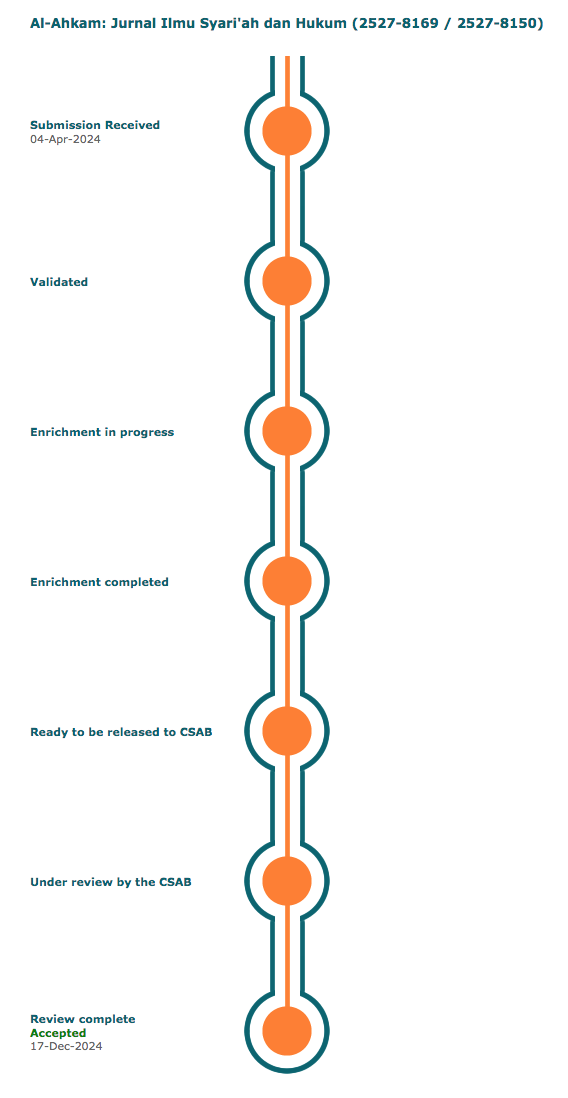Studi Komparatif Fikih Bencana Muhammadiyah dan Nahdlatul Ulama
Downloads
The background of the study is the existence of Fiqh Muhammadiyah and Fiqh Nahdlatul Ulama in coping with disaster, in response to the phenomenon of disasters happened in Indonesia, which has taken many victims and caused various losses. Muhammadiyah and Nahdlatul Ulama are two largest Islamic community organizations in this country, so the way on managing the society is always interesting to study, including FIQH (ISLAMIC JURISPRUDENCE) of coping the disaster.
Based on the reasons above, the backgrounds of the study are how do muhammadiyah and nahdhatul ulama apply their fiqh (islamic jurisprudence) to cope with disaster? and why do they apply their fiqh?
This study is library research using qualitative design and comparing between the two fiqhs from both Muhammadiyah and Nahdatul ulama. The researcher applies Philosophical approaches, through the term epistemilogi bayani, burhani dan irfani as instruments to clarify the content of both fiqhs to find the answer for both research problems above.
The findings are the guideline and methodhology used both Muhammadiyah and Nahdatul ulama covered in both fiqhs; there are several differences on the Basic conceptions related to beliefs and Aqida; ethical and moral formulations and practical things.
Muhammadiyah Fiqh explained in details regarding with practical procedures and steps of worship in coping with disaster, while Nahdlatul Ulama Fiqh explained only practical guidelines in coping with disaster.
The other finding is related to the triple epistimology. The point of bayani on both fiqhs are relatively similar, same level and size. The point of burhani on Muhammadiyah fiqh gave deeper understanding than Nahdlatul Ulama fiqh. And the point of irfani neither muhammadiyah nor Nahdlatul Ulama seem to use it. The fact of the differences refers to the basic methodology from both organizations; Muhammadiyah refers from verse and hadith, while Nahdlatul Ulama refers from aqwal ulama, although both of them refer to the verse, hadith and the decree of classical ulama (preachers)
Downloads
Anwar, Syamsul., dkk (editor), 2018, Majelis Tarjih dan Tajdid Pimpinan Pusat Muhammadiyah, Himpunan Putusan Tarjih Muhammadiyah 3, Yogyakarta: Penerbit Suara Muhammadiyah.
Asbaha>ni, Muhammad ibn Muhammad, Al-‘Az}amah, t.t Riyad: Da>r al-‘a>s}imah.
Ghazali, Muhammad ibn Muhammad, Ihya’ ‘Ulum ad-din., t.t, Beirut: dar al-ma’rifah.
Jabiri, Muhammad ‘Abid., 2009, Bunyat al-‘Aql al-‘Arabi, (beirut: Markaz dira>sat al-Wahdah al-‘Arabiyyah.
Syadzili, A.Fawaid., dkk (pengh)., 2007, Penanggulangan Bencana Berbasis Masyarakat Dalam Perspektif Islam, (Kata Sambutan Ketua PBNU,A.Hasyim Muzadi), cet. I, Jakarta: CBDRM.
Sya>t}ibi>, Ibrahim ibn Musa., tt, al-muwafaqat fi usul as-syari’ah, Beirut: Da>r al-kutub a-l’ilmyyah
Yayasan penyelenggara penterjemah/pentafsir., 1418 H, Al-Qur’an dan Terjemahnya, Madinah Munawwarah : Percetakan raja Fahd,
Zahro, Ahmad Zahro., 2004, Lajnah bahtsul Masail, Tradisi Intelektual MU, cet. I, Yogyakarta: LKIS.
Copyright (c) 2021 Farkhan, Kamsi, Asmuni

This work is licensed under a Creative Commons Attribution-ShareAlike 4.0 International License.








